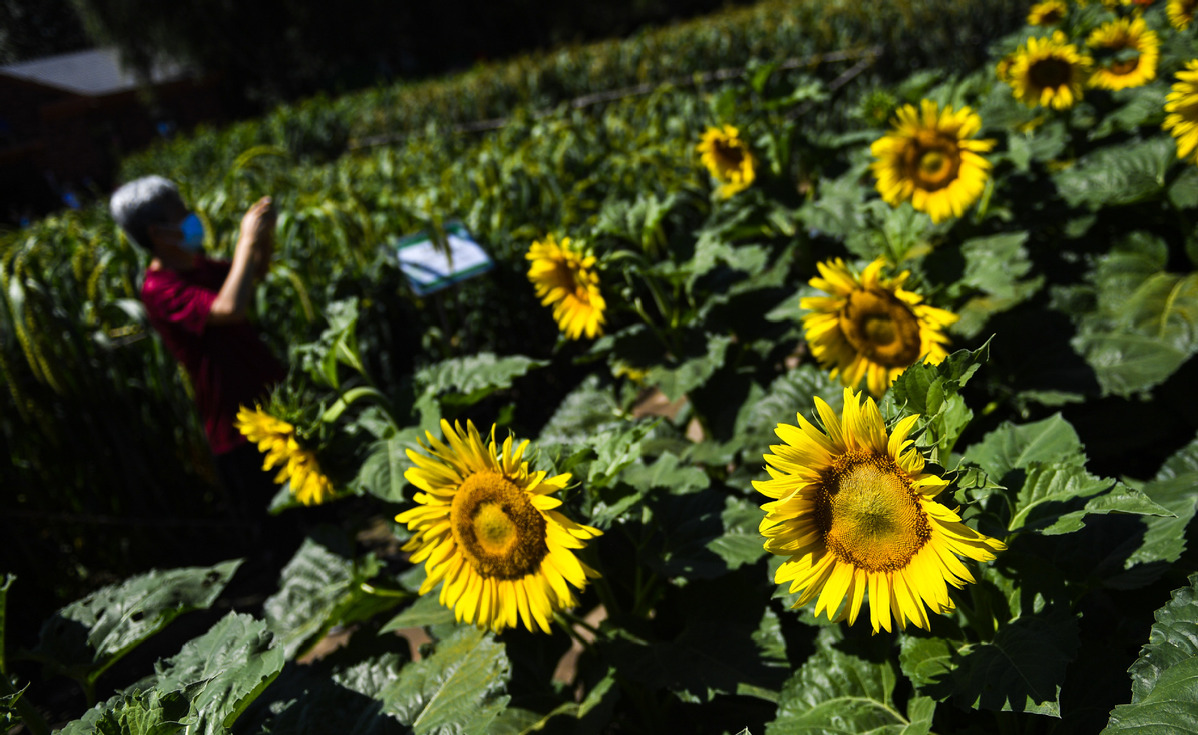Research makes sunflower 'waste' profitable


Yang Li is busy decorating his new apartment with the extra money he made from selling parts of sunflowers that were previously discarded.
Yang, a farmer from Shuanggang village of Jilin province's Baicheng city, used to eke out a living selling sunflower seeds from 1 hectare of farmland. Now, thanks to new technology, he can make an extra 54,000 yuan ($7,960) a year with sunflower disks-the hard round center of the plant left over once the sunflower seeds are harvested.
"We never knew the disk could bring in money because even cows don't like to eat it. Now, I can afford to travel with my wife with our increasing income," said Yang, 58.
Shuanggang as a whole has benefited from scientific research on sunflower disks. According to Zhao Guo'an, founder of Jilin Teyi Food Biotechnology, the company purchased more than 200 metric tons of sunflower disks from Shuanggang last year, which has helped 130 local farmers earn more than 5.2 million yuan.
"Small molecular peptides, alkaloids and flavonoids that are effective in treating gout and allaying inflammation can be extracted from sunflower disks," said Gao Bo, director of the department of biological medicine at Jilin University. "It has a very promising future in clinical practice."
Gao, who graduated from Changchun University of Traditional Chinese Medicine, came across sunflower disk treatment by chance.
"I learned this from Nobel Prize winner Tu Youyou, who discovered artemisinin from TCM. I assumed some new drugs could be developed from the little disks," said Gao, who organized a team of molecular and computer experts to study the working mechanism with the support of Zhao.
The past two years proved Gao's prediction was correct as the team found sunflower disk extractives have a unique effect on reducing uric acid and treating gout. They published a number of high-quality articles and even developed products.
"The combination of TCM and modern technology has a magic touch and will make contributions to people's welfare around the world," Gao said.
He said that the team has set up a planting base and manufacturing factory in Shuanggang, which creates jobs for local farmers.
The project was supported by Wu Hongtao, the local village Party secretary, who is helping locals profit from the discovery.
"This means a lot for farmers because people like Yang Li can plant sunflowers in our village and do not have to leave home to work in other cities. They have more income and time to take care of kids and seniors," Wu said.
Mu Shanchun, director of the medical and health branch of the science and technology department of the Jilin government, said that local authorities have invested 925 million yuan in the field of medicine and health and have set up 40 key laboratories in the past five years.
Zhang Yiduo contributed to this story.
- Nanchang funds 19 free funeral venues after tragedy
- Massive ice sculpture replicates CNS?Liaoning aircraft carrier
- China to enhance to improve carbon footprint
- Experts advocate vaccinations to combat flu cases
- Singer Lu Han apologizes for inappropriate behavior
- Xi stresses winning tough, protracted and all-out battle against corruption





































